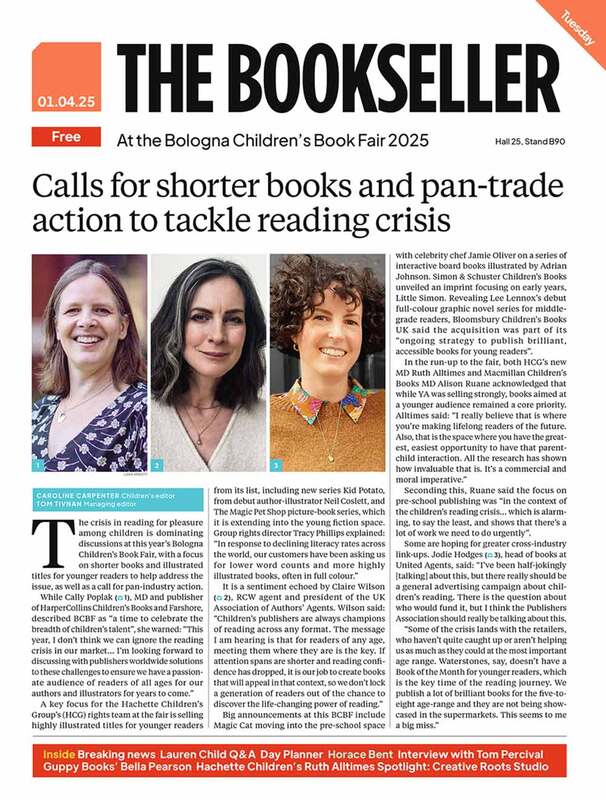You are viewing your 1 free article this month. Login to read more articles.
HarperCollins joins PRH in 2019's Social Mobility Employer Index
HarperCollins UK has unveiled new initiatives as part of its ongoing support for The Literacy Project and has joined Penguin Random House UK in a ranking of employers in 2019 who have taken the most action on social mobility in the workplace.
Launched in 2018 by c.e.o. Charlie Redmayne at the start of his year as president of the Publishers Association, HarperCollins will now be now extending its Literacy Project work to encompass Southwark, where its London offices are based.
Building on its work with primary schools, the publisher will now be working with secondary schools in Southwark on initiatives including a series of ‘getting into publishing’ sessions to support the PA’s Work in Publishing Week between 18th and 22nd November and developing a work experience programme open to young people from Southwark schools.
The announcement comes as the company is included on the Social Mobility Employer Index 2019, the Social Mobility Foundation’s annual list of employers taking action to improve social mobility in the workplace.
HarperCollins ranked 71st in the Index. The only other publisher to appear in 2019’s Index is Penguin Random House, which ranked 25th, up from 39th place in 2018’s index.
The recognition of the publishers' work in this area follows a survey conducted by The Bookseller earlier this year showing almost 80% of people in the publishing industry who see themselves as working class feel that their background has adversely affected their career.
HarperCollins was included for its outreach work in schools in Stoke, apprenticeships in its Glasgow offices and distribution centre and from this month London, its adoption of a blind recruitment process, and for building relationships with non-Russell Group universities for its graduate scheme and BAME traineeship.
John Athanasiou, director of People at HarperCollins, said: “I am very pleased that HarperCollins is one of two publishers included in the Social Mobility Employer Index 2019. As an industry we need to reflect the communities we serve, and we can do that best by casting our net as far and wide as possible when looking to recruit, and then helping those in the company succeed. The measures we have put in place are helping, but there’s more to do and we will continue to improve in this area with a clear and focussed strategy for 2020 and beyond.”
Val Garside, HR director at PRH UK, added following its improved listing: "We’re so pleased to see the progress our efforts have made reflected in our ranking of 25 this year, up from 39 in 2018. At the same time, we know there’s more to be done. We believe being an inclusive employer is not only a moral imperative but also fundamental to being a better publisher. Diversity of experience and background fosters creativity and this is core to our commercial success. So we’re committed to making the changes that mean all colleagues, regardless of background, can reach their potential and feel a sense of belonging."
HarperCollins and Penguin Random House joined a list of companies also including banks, engineering firms, law firms, government departments, retailers, and even MI6, the first time one of Britain’s intelligence agencies has entered the list.
David Johnston OBE, chief executive of the Social Mobility Foundation, said: “Whilst no employer would say they have cracked their social mobility challenge, all of the employers in the Top list – along with those that didn’t quite make it – should be congratulated for the efforts they’re making to ensure their organisation is open to talent from all class backgrounds.”
The Rt Hon Alan Milburn, chair of the Social Mobility Foundation, added: "Social mobility is becoming a cause for more and more of our country's top employers. When politics is weak, society needs to be strong - so it is welcome a growing number of employers are stepping up to the plate. They recognise the need to open their doors to a wider pool of talent both to address growing public concerns about unfairness and to reap the business benefits from having more diverse workforces. The onus is now on all of our country's top employers to do the same."
















